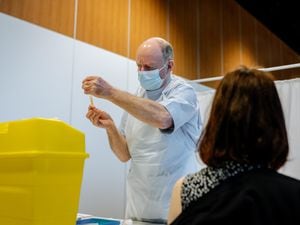'I’ve been told I’m going to be a murderer’: Shocking abuse of ambulance call handlers revealed
Ambulance service call handlers have lifted the lid on the shocking levels of abuse they face from callers.
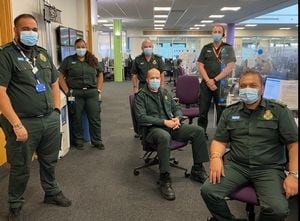
West Midlands Ambulance Service says its call handlers receive on average at least one abusive call every shift.
Some have reported being called "murderers" and told they would be accountable if patients died while waiting for treatment.
Others have been threatened with physical or sexual violence aimed not only at themselves, but also their families.
Swearing, screaming and racial abuse is also common, says Jeremy Brown, an integrated emergency and urgent care director who has worked for the service for more than 30 years and has witnessed the abuse himself.
He today made a plea for the abuse to stop, saying staff are simply trying to do their job.

"We accept people can get fraught in difficult situations, but this has gone above and beyond that," said Mr Brown, who has worked both on the frontline as a paramedic and in control.
"It is turning into a personal assault on someone who is just trying to do their job.
"Some people have had their families threatened. They are threatening to find where they live and harm them.
"They are trying to do their very best and are highly trained – these people are unsung heroes.
"It is frustrating at the very least and some of the staff get traumatised by this level of abuse."
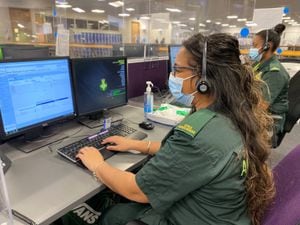
WMAS is one of the country's largest ambulance services, serving Shropshire, Staffordshire, Herefordshire, Worcestershire and Warwickshire as well as West Midlands county.
It has come under extreme pressure recently and Mr Brown says the levels of abuse have become "unacceptable".
Mr Brown said: “Call assessors are the first voice you hear when you call 999 for an ambulance.
"They are there to do the very best by each and every patient, being abusive difficult and offensive to them is not going to help a patient and does have an impact on call assessors personally.
“When people call 999 for help, call assessors often talk to people at their most vulnerable and often at a person’s low point in their lives.
"Having taken 999 calls myself, I know how difficult a job it can be at times.
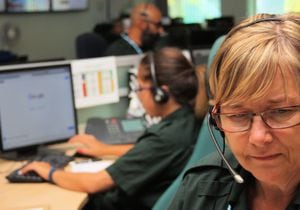
"As a call assessor you’re trained to diffuse situations and calm down callers so that we can get the vital information we need to arrange the best help quickly.
"It’s understandable when callers are fraught and frightened but it’s not an excuse to be abusive.
“Swearing, screaming, threats of violence and racial abuse are all too common and it’s not acceptable and not okay.
"Call assessors routinely accept that this level of abuse is part of the job and hardly report abusive calls, but it doesn’t mean that they aren’t affected by the level of abuse they receive."
Call assessors complete an intense two-month in-house training programme where they receive comprehensive training to use the trust’s computer systems, complete an accreditation to use the national telephone triage system as well as a nationally recognised first aid qualification and also learn about health and physiology.
Once the classroom training is complete, they are mentored in the integrated urgent and emergency care control room whilst taking live 999/111 calls with an experienced call assessor, before undertaking a final assessment and are then signed off as ready to take calls alone.
They work from control rooms in Stafford and Brierley Hill, with up to 200 call handlers on duty at any one time.
In busy periods, they can take up to 15,000 calls to 999 and 111 in a period of just a day.
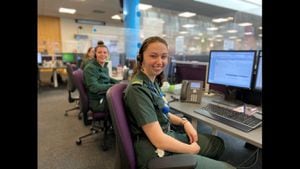
Mr Brown says call handlers are encouraged to report any abuse they suffer and there is support available.
If there is an abusive caller, control room supervisors will often intervene on the call.
They also provide support following a difficult or abusive call and offer downtime.
"We are a big organisation and have the ability to offer support to them," added Mr Brown.
"The support is there but they shouldn't have to deal with this level of abuse in the first place.
"People are living in a society now that is so instant, people are that used to thinking they know what they want and not wanting to go through a triage.
"My plea is for people to take stock and understand these are human beings. Abuse will only delay help.
"If you ever need to call 999 or 111, all I ask is that you are courteous and treat my staff with respect.”



